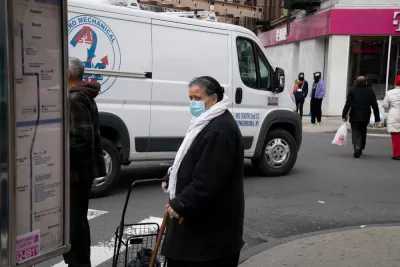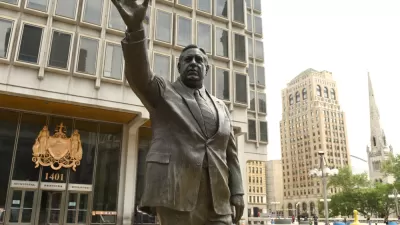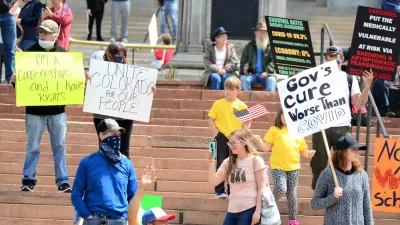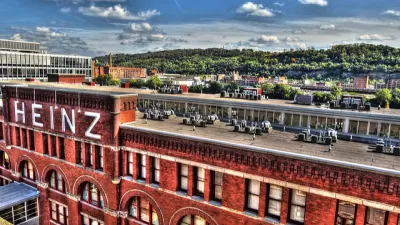The economic and health effects of coronavirus have spread unevenly across racial lines in the United States, as further revealed by new research from the Pew Research Center.

Mark Hugo Lopez, Lee Rainie, and Abby Budiman present new data and analysis on the disparate public health and economic effects of the coronavirus for Black and Hispanic Americans.
The financial shocks of the outbreak have hit Hispanic and black Americans especially hard. When it comes to public health, black Americans appear to account for a larger share of COVID-19 hospitalizations nationally than their share of the population. And in New York City, death rates per 100,000 people are highest among blacks and Hispanics.
In addition to the previous reports cited in that paragraph, new data from Pew Research Center surveys show additional disparities along racial lines in terms of public health and economic experiences in the first few months of the coronavirus pandemic. The article presents five key findings, with more details included in the source article:
- Job and wage losses due to COVID-19 have hit Hispanic adults the hardest.
- Most black and Hispanic Americans do not have financial reserves to cover expenses in case of an emergency.
- The COVID-19 economic downturn has made it harder for some Americans to pay their monthly bills.
- There are sharp racial and ethnic differences in personal experiences with COVID-19 and in concerns about spreading or catching the virus.
- Hispanic and black Americans are more likely than white adults to say cellphone tracking is acceptable in efforts to fight the virus.
For a few ideas about how to respond to the pre-existing conditions that have rendered these racial disparities obvious during the pandemic, see a Planetizen feature by Joan Alexander, with examples from Oakland and Austin.
FULL STORY: Financial and health impacts of COVID-19 vary widely by race and ethnicity

Maui's Vacation Rental Debate Turns Ugly
Verbal attacks, misinformation campaigns and fistfights plague a high-stakes debate to convert thousands of vacation rentals into long-term housing.

Planetizen Federal Action Tracker
A weekly monitor of how Trump’s orders and actions are impacting planners and planning in America.

San Francisco Suspends Traffic Calming Amidst Record Deaths
Citing “a challenging fiscal landscape,” the city will cease the program on the heels of 42 traffic deaths, including 24 pedestrians.

Defunct Pittsburgh Power Plant to Become Residential Tower
A decommissioned steam heat plant will be redeveloped into almost 100 affordable housing units.

Trump Prompts Restructuring of Transportation Research Board in “Unprecedented Overreach”
The TRB has eliminated more than half of its committees including those focused on climate, equity, and cities.

Amtrak Rolls Out New Orleans to Alabama “Mardi Gras” Train
The new service will operate morning and evening departures between Mobile and New Orleans.
Urban Design for Planners 1: Software Tools
This six-course series explores essential urban design concepts using open source software and equips planners with the tools they need to participate fully in the urban design process.
Planning for Universal Design
Learn the tools for implementing Universal Design in planning regulations.
Heyer Gruel & Associates PA
JM Goldson LLC
Custer County Colorado
City of Camden Redevelopment Agency
City of Astoria
Transportation Research & Education Center (TREC) at Portland State University
Jefferson Parish Government
Camden Redevelopment Agency
City of Claremont





























